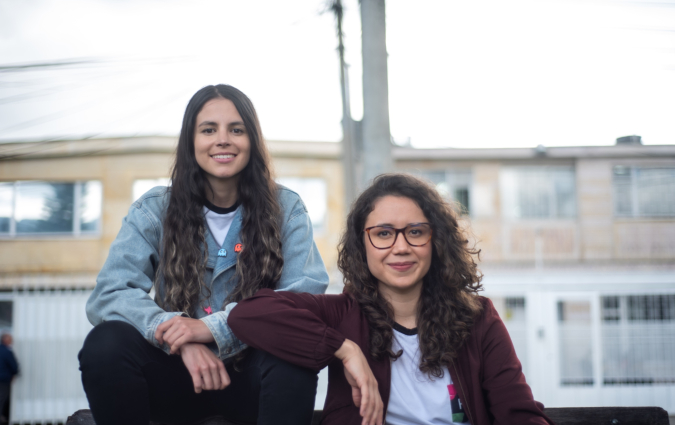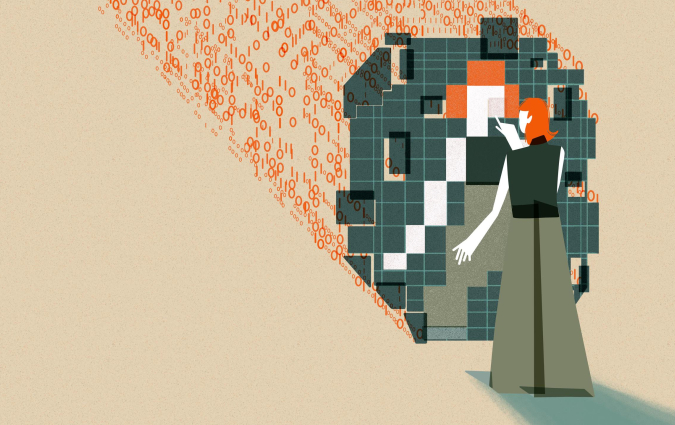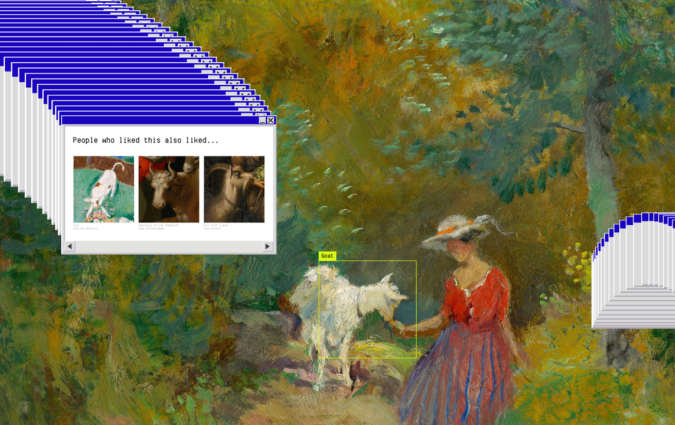Journalists and academics can be “curators of truth and educators at heart,” says Oxford University Vice-Chancellor at our reunion
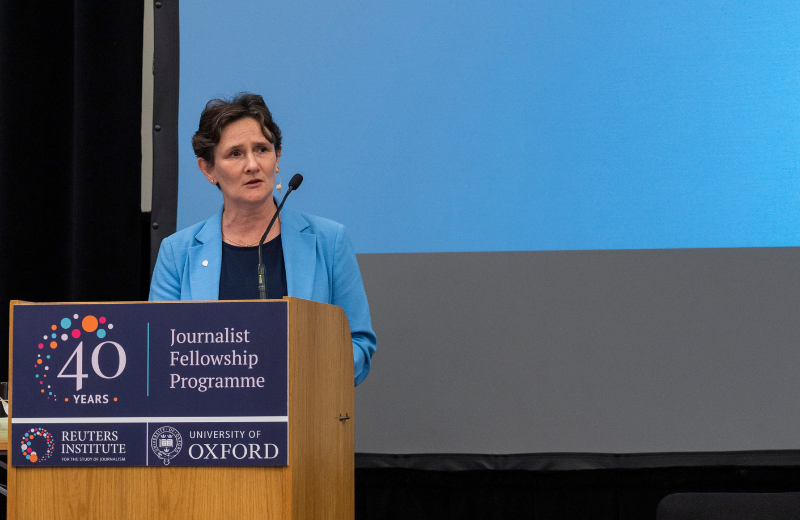
Prof. Irene Tracey, Vice-Chancellor at the University of Oxford, delivers keynote speech at the Reuters Institute's 40th anniversary of the Journalist Fellowship Programme
It's been an absolute delight since I started my role in January to start to get to know parts of the University that were less well known to me beyond Medical Sciences and the Reuters Institute is one such example and I do congratulate you for the vision that you set in establishing it and in the excellence by which you have maintained that vision over these 40 years.
It really is cause for celebration so I welcome you again back to Oxford on this glorious autumn evening and I wish you well for the reunion over the weekend. In this speech I'm not going to say too much about myself.
If you want to know more about me and my vision for the University you're very welcome to watch my YouTube recording of my inauguration speech in January. It's a sure cure for insomnia, it's 30 minutes long but it does detail a little bit about me, my background, the fact that I am an alumna of this great University and apart from two years as a postdoctoral fellow at Harvard Medical School I’ve spent all my academic career in Oxford as a pain neuroscientist which has often been said is a very good training for becoming Vice-Chancellor. I have been head of one of the larger departments in Medical Sciences and head of my former college Merton College, alongside various other national, international leadership roles.
Watch Prof. Tracey's speech and Q&A chaired by Mitali Mukherjee, Director of Journalist Programmes at the Reuters Institute
So, as such, as Rasmus mentioned, I have had many interactions, I have to say very positive on the whole, with the media in my role both as a scientist and as an academic leader. These relationships I value, I have tremendous respect for, and I hope that in this new role I might extend, as I do believe that we have much in common both as educators and as curators of truth. Some elements of your profession might lean towards more entertainment than ours but we do share probably more common ground than might at first be appreciated. But before I share some thoughts, as it is a celebration, I thought I'd take a moment just to highlight some of the key features of what the Reuters Institute has achieved since its inception and remind you a little of its 40-year history - you saw some of the photographs there - and of which you should be very proud because you have all shaped and played a key part of its history and its success.
‘A nodal point for journalism’
Obviously in the 1980s and 1990s it was initiated in the backdrop of intense political upheaval across Europe, turbulent post-Soviet transition, dramatic fall of the Berlin Wall, images that will be etched in our memories, a fledgling idea to support journalism was conceived in Oxford. The Reuters Fellowship was created to bring the world of journalism and journalists into the fold of the University of Oxford. Fellows from Serbia, Germany, the Czech Republic, Croatia, Albania, Bulgaria, Russia, Palestine and Somalia travelled to Oxford and took on difficult and politically contentious topics like European migration politics in their work.
The 1990s saw the fellowship grow both in size and reach with Journalist Fellows spanning Europe, Asia, Africa, Australia and New Zealand. It was the advent of the internet as we know it today and a lot of the papers presented by Journalist Fellows reflected issues that still remain critical to the world of journalism and wider societies: the role of the free press and democracy, the impact of the internet on newspapers, gender equality in the media and global warming to name but a few.
The 2000s, though, were the most seminal decade in a sense for the Reuters Journalism Fellowship and in no small measure thanks to the unwavering support of the Thomson Reuters Foundation that has funded activities at Oxford for over 30 years. And it is with the Foundation’s support that an Institute dedicated to journalism and the public they serve was born then in 2006. And let me here take a moment to thank the Thomson Reuters Foundation for their steadfast support and for their vision. Philanthropy is the fuel that feeds a university and allows it to develop in innovative and bolder ways and to be agile in tackling issues of the day in an unshackled way. Oxford remains immensely grateful for the extensive philanthropic support it receives and that includes the Thomson Reuters Foundation.
When the Reuters Institute was established in 2006 Tim Gardam, then Principal of St. Anne's College, Oxford, and chair of the Reuters Institute steering committee wrote this in the Guardian on the idea behind the Reuters Institute. “Great power demands scrutiny. This has been the premise on which journalists have interrogated and held to account government and authority. Yet journalism itself, particularly in this country, does not receive the same intelligent scrutiny of its own power. The media world talks to itself all the time, and the claustrophobic debate goes round in circles, but Britain lacks an arena where the operations of journalism and its public policy implications can be seriously thought through and where anecdote and allegation can be tested by evidential research. The establishment of the Reuters Institute at Oxford University, which was announced last week and will open in the autumn, is designed to meet this need.”
So in the 2000s many gathered here and witnessed life as we know it as it began to shape shift. There was a global financial crisis, a rise of populism, pressure on democracies and most importantly new and unknown terrain for journalists and the wider public with the advent of large social media platforms like Facebook and Twitter. It is especially noteworthy that this is also the period when the Reuters Institute began to conduct research into many of these aspects, giving it the unique distinction of being one of the very few institutions of academic rigour and excellence that was documenting in real time the fragmentation and the tectonic shifts in the world of news and how all of us would go on to watch or read or listen to it.
The Digital News Report that started with five countries in 2012, today spans 46 markets that account for more than half the world's population. As an example, it is only because of Reuters Institute's research that facts like this are documented: 59% of people in the UK got their news from print in 2012, 14% do so now. 33% of Japanese got their news from their phones in 2015, 60% did in 2022. 62% of Brazilians trusted most news most of the time in 2015, 43% say they do so today.
Through large political and economic upheavals like Brexit, strongman governments and a much more challenging financial environment, journalists, just like academics, will recall another tangible change: the rise and rise and rise of disinformation, a phenomenon that became widespread and dangerous when the world was struck by a pandemic. The Reuters Institute doubled down on its research efforts around journalism and the pandemic, focusing on communications because every crisis has shown us that communication is central to that crisis, including a public health crisis, and it's central to the political discussion around how we, as a society, handle them.
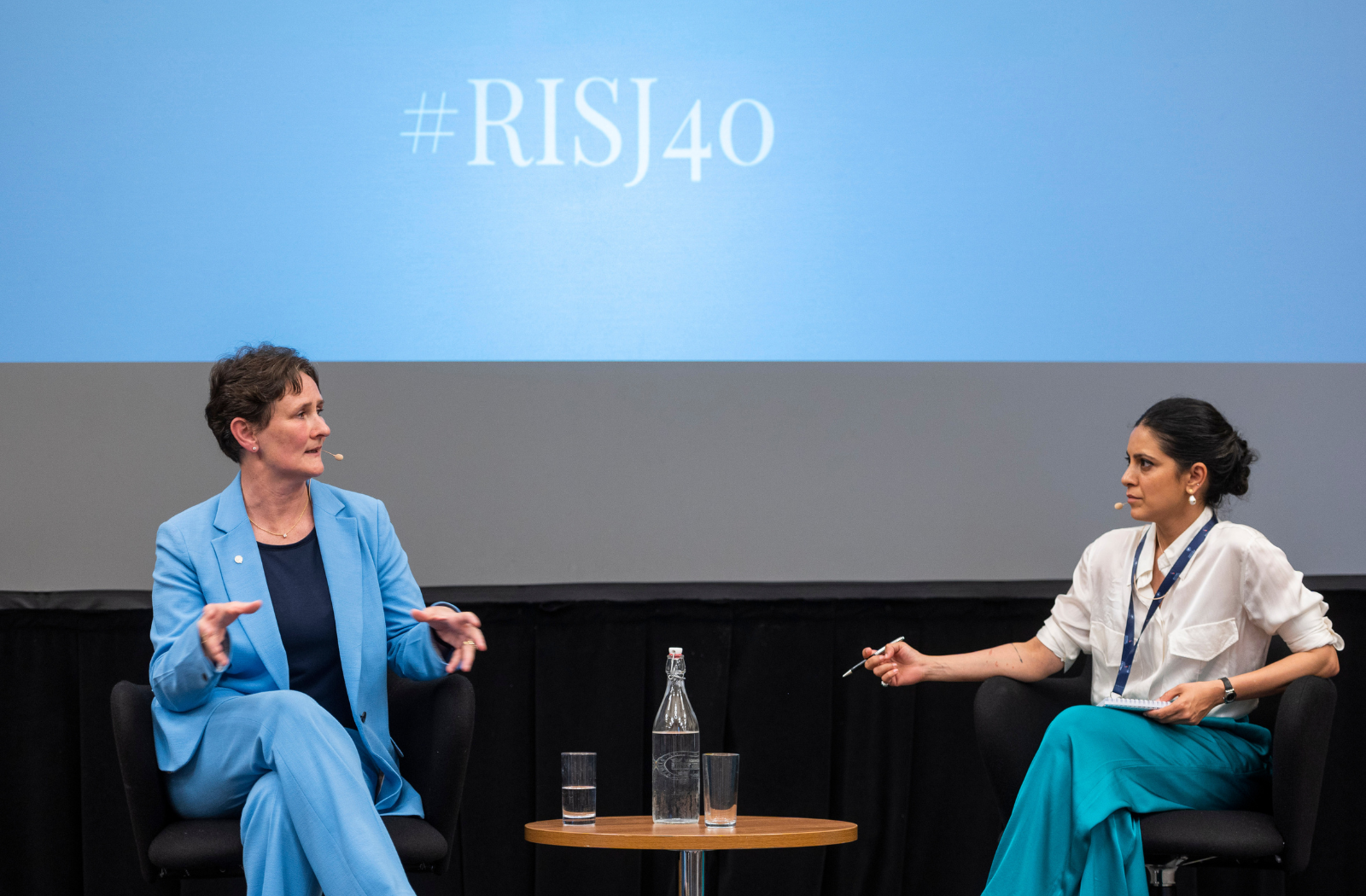
Today in 2023 the Institute is no longer an emerging idea but a nodal point for journalism, firmly committed to seeking truth and reporting it, globally focused and specifically structured to bring together world-class research engagement with practitioners at all levels and to improve the quality of journalism worldwide. The Institute is international in thought and purpose and while its home remains in Oxford the Institute's roots and branches spread across the world with digital-only initiatives like the Oxford Climate Journalism Network engagement with news leaders across the world and encompassing more languages including Spanish and Italian. So, once again, congratulations on your collective achievements and a very happy 40th anniversary.
Journalism and academia: ‘curators of truth and educators at heart’
So now let me share some thoughts on the parallels between academia and journalism. At its best, journalism has the ability to take on a shared role with academia as curators of truth and educators at heart. In the academic sector we are well aware of our educational and discovery research role. But we are also increasingly aware of the importance that curating truth, for want of a better expression, plays. In the rise of disinformation, AI, short attention spans, I could go on, where does grand truth reside? What trusted body is going to curate it and what must we do to protect the importance of curation as a society?
For both journalists and academics, discovering, sharing and curating the truth involves a constant journey. In the case of the academic, I'm thinking particularly the scientist, this is through the process of hypothesis-setting, data gathering, intensive research and analysis, followed by exposing the results to scrutiny, the peer review process, and eventually, we hope, publication. Ideas, discoveries, theories evolve and we have the story of that evolution curated in our academic
journals or books, our libraries and now our databases. We increasingly have the curation of the actual data for sciences in open and shared databases so that there is full transparency and so that other researchers might use or mine that data to verify the original hypothesis or test additional hypotheses.
In the case of journalism truth-seeking is through investigative journalism and independent political and economic journalism in polarised societies. I'm keen to discuss, maybe later in the discussion, how the source material you have is shared, archived and tested for absolute truth for reporting. Are the mechanisms there and have we got it right when it comes to calling out, akin to what happens in peer review, if something in the media is over egged or just plain wrong? For me this comes to the fore in science and health reporting and increasingly with climate reporting. The repercussions of getting it wrong are profound. Accountability is everything and I do worry that we've not got it quite right in your profession.
Academic research or teaching as well as journalism both need to be free to explore potentially contentious issues without limits, whether those are imposed by politicians or groups seeking to impose a line in any particular area. While free speech and open debate are the cornerstones of robust societies, in many parts of the world there are now increasing cases where institutions of power and authority are clamping down on both professions, with a name to stymie free speech and undermine independent and critical thought or create no-go zones of curiosity-led research.
It is in times such as these that it becomes vital for both academics and journalists to speak in support of, and vigorously defend, free speech, a reflection of societies that value the importance of both discovering and curating the truth no matter how uncomfortable it is for the benefit of all and to help societies evolve well, giving voice to underrepresented groups or views. That does not mean we have to tolerate or condone in the name of free speech, and within our organisations, commentary that is abusive, hurtful and discourteous. We have to be better than that and we have to lead the way to show what good looks like.
A privilege and responsibility
I spoke about trusted bodies earlier and their importance in a complex world. Now I'm bound to say this as Vice-Chancellor of one of the world's leading universities but I do believe institutions like Oxford and our other great universities have been, should be and hopefully will always be, those trusted bodies. But we must be vigilant and not arrogant having earned that privilege and responsibility. But what about trust in your profession, in the news? Well, as in previous years, the Reuters Institute has done the research and they have found that the highest trust levels in the news are in countries such as Finland (69%), Portugal (58%), lower trust levels in countries with higher degrees of political polarisation such as the United States (32%), Argentina (30%), Hungary (25%) and Greece (19%).
It's intriguing how this maps onto broader issues of trust, if you didn't know, within those countries and societies that also relates, in fact, unusually, to their happiness and wellbeing score. if you want to learn more about this listen to my Fire and Wire podcast, where I interview professor De Neve, an economist professor here in the University and director of the Wellbeing Centre who talks about the impact of wellbeing and how trust in society leads directly to the outcomes in terms of good happiness and wellbeing and indeed economic improved productivity.
So perhaps unexpectedly trust in the news in the UK continues to fall. 33% say that they trust the news most of the time, one percentage point less than last year. Interest in the news is also plummeting 43% of people say they are very or extremely interested in news and that was 70% just seven years ago. So against that rather bleak backdrop of plummeting percentages and numbers I can say there is a heartening sign for the United Kingdom in that our public service broadcasters the BBC News, Channel 4, ITV News are the top three most trusted news sources, a sign that there is an important role to be played perhaps by news organisations that provide reliable news that is free to access and read for a wider public, something for us all to cogitate on.
Now let me turn to misinformation and fake news. A common challenge in this quest for truth and protecting it has been the tidal wave of misinformation and fake news that we have witnessed over the years and the worrying fact that by the time something might have been bottomed out and corrected everyone has moved on to the next exciting thing in our relentless need to fill a 24-hour news cycle. Since COVID this has spilled over from politics to the environment, health and vaccines posing a severe challenge to independent research in journalism alike.
In the Reuters Institute's recently published Digital News Report for 2023 they found that when looking across 46 countries at the types of misinformation that people claim to see dubious health claims around COVID-19 including from anti-vaccination groups are still widespread, along with false or misleading information about politics. The team has also found that environmental groups across countries included in their report say that climate change denialism has been making a stark comeback on social media with misleading advertisements on Facebook and other networks and viral hashtags such as #climatescam on Twitter which critics say has been failing to properly moderate harmful content since that takeover by Elon Musk.
Misinformation often comes from people in authority, which makes the concept of who to trust contentious, difficult and therefore so so important to get right. Trust is increasingly fragile. As the great Lady Gaga says: “Trust is like a mirror, you can fix it if it's broken, but you can still see the crack in that mother bleep reflection.” I'll let you plug in the “bleep”. There is less deference towards figureheads, institutions, established authorities, which could be argued is a good thing as more people choose to challenge ideas and conventions but it also begs the question, who then do we trust?
In a world that is now unpacking the AI phenomenon, combating misinformation becomes more important than ever but for the reasons above also harder to do. I feel for you as you face many challenges, some overlapping with those we face in academia. You too face a crisis in funding and a crisis of attention in journalism. I understand that the economic challenges facing the news industry have led to layoffs in many countries.
Many of you gathered here in the room tonight are probably working under far more pressure than you did 20 or 10 years ago. Some news companies have responded by building pay models online and these have succeeded in some major brands such as the Financial Times in the New York Times but they inevitably limit access to their journalism. And the economic crisis means that many people have had to rethink how much they can afford to spend on their news media as noted again in the Reuters Institute's Digital News Report 2023.
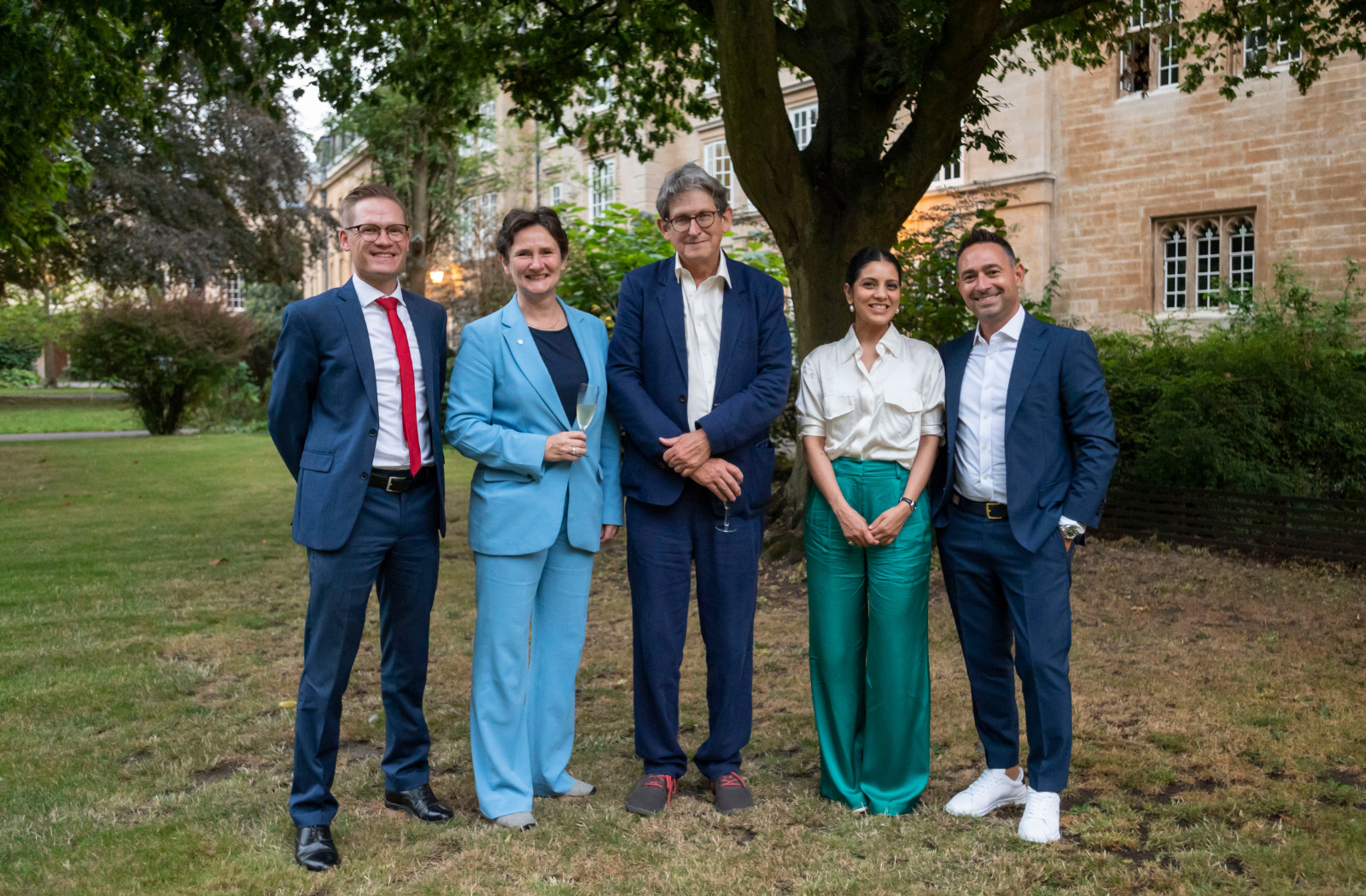
We have a shared concern over the crisis of attention. There is no doubt there is a marked and changing nature of social media, people are now moving away from networks such as Facebook and towards video networks like TikTok. I have witnessed that shift with my own children and with my interactions with students. Again, the Reuters Institute data confirms our intuition, more cleverly than ever, that this shift is indeed strongly influenced by habits of the younger generations who have grown up with social media and nowadays often pay more attention to influencers or celebrities than they do to journalists even when it comes to the news and, I fear too, scientific findings and facts.
In the Digital News Report 2023 it states the proportion of news consumers who say they avoid news ‘often’ or ‘sometimes’ remains close to all-time highs at 36% across the markets. That is a very worrying fact. So who calls it out? My daughter is an aspiring media law barrister and I can understand why she's so driven to specialise in this area that has plenty of room for developing laws and regulation when it comes to fake news, misinformation, accountability reputation, defamation, revenge porn, copyright, again I could go on.
An often-frictional relationship
Let me now turn to the specific relationship, then, between journalists and academics. Now, on the negative side, as I said mostly my experience has been very positive with the interactions that I have had but it is true that there is often friction in the relationship between academic scientists and journalists. While the world of science and academics has felt misrepresented by irresponsible reporting or hasty quotes, journalists I know have found it frustrating when scientists have not moved with haste and information has been slow. The classic overhyped headline from your end versus the jargon-filled response. The fear from your end of anything too ‘science-y’ or, God forbid, a graph or correlation and the desire to have binary clarity for the story versus the scientist’s ‘nuanced’, ‘the data suggests/indicates/implies’.
There is a need for both better communication from academics and scientists and more responsible engagement on the part of journalists. We also need to skill up journalists and this is something that we're addressing in the university, not specifically for journalists but I'd be very happy to discuss it further in the discussion as to how we can address, I think, some of the fears that journalists who are drawn largely from a humanities background particularly from the UK system struggle, I think, with some of the scientific jargon and limit the ability to report at the level that I think many of us feel the public can take and needs to take if they're going to understand, make policy decisions and move on.
It's also important to recognise that expert opinion enjoys a high degree of trust. Journalists and news organisations must help provide for experts to communicate better. As COVID demonstrated, and continuing climate change expertise shows, there is value and credibility in niche and specific expertise. Social media has had an interesting outcome because scientists and academics can reach out to a wider audience directly via their Twitter handles or other social media accounts as opposed to being profiled in a story by a journalist. The stark reality however is that direct engagement is a powerful tool but it comes at a cost. High-profile women including journalists are subjected to online abuse uniquely mediated and expressed via the internet but intrinsically related to offline behaviours.
The biggest challenge we now face is around climate. The Guardian reports that some of the UK's top scientists are struggling to deal with what they describe as a high rise in abuse and climate crisis deniers. My husband is a climate researcher and again I'll be happy to expand on the journey he's taken in his career in terms of interacting with the media. And so we have climate deniers on Twitter and it's risen since the social media platform was taken over by Elon Musk.
So this is the time to build a more authentic relationship between scientific expertise and the world of journalism and I look to organisations like the Science Media Centre in London led by the fantastic chief executive Fiona Fox and her team who do incredible work to provide journalists with what they need in the time frame they need it from interviews with leading experts to timely press briefings on hot topics and to provide scientists free events to introduce experts to the news media as well as advice and support to scientists on media engagement and how to do it well.
The only way to fight misinformation and continue to remain loyal curators of truth is to work in collaboration. So on the positive side of the relationship between us two important milestones have changed the relationship and pointed to ways where this relationship can indeed be strengthened: The COVID pandemic and now the ongoing climate crisis. The COVID-19 trust bump.
The Nuffield Foundation funded an eight-month research project published in October 2020 and in the Reuters Institute report authors looked at three key lessons learned on communications in the coronavirus crisis for the UK. They focused on communications because communication is central to any crisis including a public health crisis and it's central to the political discussion around how we as a society handle them. In terms of the broad public the simplest suggestion for communications in the next stages of the coronavirus crisis in their report was to focus less on politicians and pundits except where absolutely necessary and more on the sources that are (a) highly and broadly trusted and (b) demonstrably help people understand the crisis, most notably the NHS and scientists doctors and other experts.
Their climate research across audiences of eight countries including the UK found that overall those who follow climate change come across a wide variety of different sources featured in the coverage including scientists, political actors, energy companies and environmental activists. It is important however to recognise that respondents do not see all these different sources as equally credible. Across all countries scientists are highly and broadly trusted (it warms my heart) whereas political actors and energy companies are regarded with considerable scepticism. In terms of trust, news media themselves are generally in the middle of the range of sources that authors ask people to rate but they are more trusted than the energy companies and politicians, so there's some hope there, but less so than us the scientists and in many cases less so than international institutions such as the UN.
Building an authentic relationship through collaborative bridges
So finally, and in conclusion, how do we build an authentic relationship? Well again I quote from Reuters Institute an academic paper written on the question, “Does the news media exacerbate or reduce misinformation problems?” And they have the following key observations: “Our findings challenge the notion that news media, by reporting on false and misleading claims, ultimately leave the public more misinformed, and support the idea that news helps people become more informed and, in some cases, more resilient to misinformation”.
In answer to the opening question ‘Can news help?’ their results were a clear ‘Yes’. Thank heavens, you’ve still got a job. And their results suggest it is important to complement efforts at fighting misinformation with efforts to get reliable news and information out as widely as possible. News media can thus play an important role in helping people become more informed and more resilient to misinformation both by engaging in fact-checking and other practices that aim at identifying rubbish and debunking it and by staying true to their classic mission of seeking truth and reporting it to the whole public as educators.
The key then is to draw on examples where collaborative bridges have worked and there are some examples. The Conversation in the UK is part of the Conversation international network. It’s made up of eight editions which operates in 12 countries, a membership organisation funded by university partners and research sector funding bodies, it is an independent source of news analysis and informed comment written by academic experts working with professional journalists who help them share their knowledge with the world.
Peer-reviewed journals like the ones I would publish in like the Lancet, independent international, weekly, general journals and specialist journals, are a vital repository of information around public health emergencies like COVID, a resource that was used by health journalists around the world and they have created a COVID-19 Resource Centre where all the content is open access which is fairly standard now for medical journals. Research-active experts producing and being directly involved in radio television series like, Rasmus kindly mentioned, the ones I've been involved with and that must happen in addition to what we call the celebrity scientist.
During COVID, Germany's public broadcaster NDR featured the prominent German scientist Christian Drosten on ‘Das Coronavirus’, a podcast where he shared scientific information on the pandemic. After just two daily episodes ‘Das Coronavirus-Update’ shot to number one on Apple podcasts in Germany.
Our World in Data is a collaborative effort between researchers at the University of Oxford who are the scientific editors of the website content and the nonprofit organisation Global Change Data Lab who publishes and maintains the website and the data tools that make that work. Our World in Data's mission is to publish the research and data to make progress against the world's largest problems. It takes a journalistic approach to presenting complex data that affects many. And the most read piece in the history of El País, Spain's most respected newspaper, was an article on how you get COVID in different places. The piece essentially visualised super-spreading scenarios and their impact. It calculated the risk of infection from COVID-19 using a tool developed by José Luis Jiménez, an atmospheric chemist at the University of Colorado and an expert in the chemistry and dynamics of air particles.
So an authentic relationship should cultivate critical thinking and value demonstrably reliable knowledge. As the Digital News Report 2023 found, for most people across ages and countries the key objective is not to make the feed more fun or more interesting but rather to make it more reliable, less toxic and with greater diversity of views. Yet despite these clearly stated preferences social media companies competing for attention and advertising continue to optimise for engagement and entertainment with less attention to increasing quality, reliability or diversity.
People need to re-learn that there's nothing more entertaining or engaging than revealing the truth about the world we live in from the magic of the earth we occupy to the stars and planets above to how our bodies and minds work through to how we live as societies and with other species. And that is where the opportunity lies to build a more authentic relationship between academic scientists and journalists to not just be truth seekers and educators of that truth but to ensure we curate that truth for generations to come.
Thank you for the kind invitation to speak, congratulations to the Reuters Institute on its 40th anniversary and I look forward to learning how I, in my position as Vice-Chancellor at the University of Oxford, as well as the University can support you and your honourable profession of journalism going forwards. Thank you.




